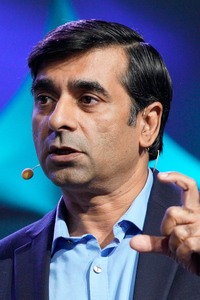Blockchain in Kyoto 2021
[Click here for homepage in Japanese]
Scope
The International Conference on Blockchains and their Applications aims at bringing together researchers and practitioners from various communities of science and technology working on areas related to FinTech, Crypto-asset, and Blockchain.
Contributors are encouraged to submit theoretical and/or applied articles on their research related to Blockchains in general.
Topics of the conference include but are not limited to the followings:
- Crypto-asset, cryptocurrency
- Blockchain technologies
- B2B and B2C solutions
- Regulatory issues
- Anomaly detection, cybersecurity
- Digital assets market, credit network, smart contract, remittance, digital ID
- Application to energy and environmental issues
- Financial inclusion
- Innovation policy
- Network science
The document of Call For Paper can be downloaded here for the benefit of circulation.
Journal Special Issue
- We will publish peer-reviewed papers in the Physical Society of Japan’s JPS Conference Proceedings. Contributors can submit papers!
Organized by
- Graduate School of Advanced Integrated Studies in Human Survivability, Kyoto University
- Co-sponsors:
- RIKEN iTHEMS
- Ripple Labs Inc.
- SBI Holdings, Inc.
- The B.E.S.T. Society (The Big data on Economy, Science, and Technology)
- The Nomura Foundation (Grants for Social Science)
Date
- February 17 (Wed) and 18 (Thu) , 2021
Venue
- Hybrid conference. Those who wish to come to the conference are welcome to the following venue. On-line presentations and discussions are also welcome.
- International Conference Room I, Clock Tower Centennial Hall, Kyoto University
- Place: https://www.kyoto-u.ac.jp/en/about/profile/facilities/staff/clocktower
- Access: https://www.kyoto-u.ac.jp/en/access/main-campus-map
Keynote and Invited Speakers
- Keynote speaker
- David SCHWARTZ (CTO, Ripple, USA)
“Under the Hood: Introduction to the XRP Ledger”
- David SCHWARTZ (CTO, Ripple, USA)
- Invited speakers (Japanese session)
- Emi YOSHIKAWA (VP of Corporate Strategy & Operations, Ripple, USA)
“Sustainability Strategies for Decarbonizing the Financial System” - Naoki SAKAI (Denryoku Sharing Ltd.)
“The Future of Energy and the SDGs with Blockchain” - Mamoru FUJIMOTO (SBI Holdings)
“How can blockchain technology help revitalize communities and SMEs?”
- Emi YOSHIKAWA (VP of Corporate Strategy & Operations, Ripple, USA)
- Invited speakers (alphabetical order)
- Kensuke FUKUDA (National Institute of Informatics)
“Characterizing money laundering activities on Bitcoin ecosystem” - Taisei KAIZOJI (International Christian University (ICU))
“Market Efficiency and Information Transmission in Cryptocurrency Markets” - Anjum KHURSHID (Dell Medical School, University of Texas at Austin)
“Empowering patients in the U.S. healthcare system using blockchain applications” - Dániel Kondor (MIT, USA)
“The complex network structure of cryptocurrencies” - Raffaella MULAS (The Alan Turing Institute, London, and University of Southampton, UK)
“Hypergraph Spectral Theory and Applications” - Kenichi UEDA (University of Tokyo)
“Digital Currency and Banking”
- Kensuke FUKUDA (National Institute of Informatics)
Registration
- Click here for Registration form.
Important dates
- CLOSED | Deadline of abstract submission (with registration) for general speakers: January 31, 2021
(N.B. Those who wish to submit an abstract for presentation must register until the end of January.)
Thank you for all the submissions! - Notification of acceptance: February 10, 2021
- Registration (without abstract submission) deadline: February 16, 2021
Registration will be open on the days of conference. For them, we will send zoom URLs privately by email.
N.B. Registration must be done until noon (12am) on each day.
- No registration fee is required.
Program
- Yuichi Ikeda (Kyoto University), Chairman
- Kazuki Ota (Kyoto University Research Administration Office)
- Hideaki Aoyama (RIETI; RIKEN iTHEMS)
- Tetsuo Hatsuda (RIKEN iTHEMS)
- Yoshi Fujiwara (University of Hyogo)
- Emi Yoshikawa (Ripple Ltd.)
Keynote and Invited Talks
- Keynote speaker
- David Schwartz (CTO, Ripple, USA)
Talk title: “Under the Hood: Introduction to the XRP Ledger”
Abstract: Developers building on blockchain today use XRP and its corresponding blockchain, the XRP Ledger, for its performance, low cost, reliability, scalability and inherently green attributes. Learn about the ins and outs of the XRP Ledger in this deep dive on the foundation, mechanics, and features of the blockchain with David Schwartz, Ripple CTO and co-creator of XRP Ledger—including new uses cases for CBDCs and stablecoins as the future of fiat.

- David Schwartz (CTO, Ripple, USA)
- Invited speakers (Japanese session)
-
- Emi YOSHIKAWA (VP of Corporate Strategy & Operations, Ripple, USA)
Talk title: “Sustainability Strategies for Decarbonizing the Financial System”

- Naoki SAKAI (Denryoku Sharing Ltd.)
Talk title: “The Future of Energy and the SDGs with Blockchain”

- Mamoru FUJIMOTO (SBI Holdings)
Talk title: “How can blockchain technology help revitalize communities and SMEs?”

- Emi YOSHIKAWA (VP of Corporate Strategy & Operations, Ripple, USA)
-
- Invited speakers (alphabetical order)
- Kensuke FUKUDA (National Institute of Informatics)
Talk title: “Characterizing money laundering activities on Bitcoin ecosystem”
Abstract: In this presentation, we talk about how to characterize potential laundering activities on Bitcoin transactions with a graph-theoretic approach.
We first create transaction graphs and analyze various graph features of laundering and legitimate transactions by extracting publicly-available Bitcoin transaction data over several years.
As the main contribution, we highlight the difference of graph structures (i.e., output values and neighbourhood) between laundering and legitimate transactions.
Next, we evaluate the performance of several machine learning-based classifiers with four types of features (immediate neighbours, curated features, deepwalk embeddings and node2vec embeddings) to classify laundering and legitimate activities.
We finally discuss the prediction ability of the classifiers with several techniques (i.e., ensemble and over-sampling) for detecting unknown laundering services.

- Taisei KAIZOJI (International Christian University (ICU))
Talk title: “Market Efficiency and Information Transmission in Cryptocurrency Markets”
Abstract: In this talk, comprehensive studies investigating the statistical properties of the Cryptocurrency exchange rate are presented. Firstly, we demonstrate that in the long term, the semi-strong market efficiency of cryptocurrencies holds by methodologies that compare FX spot exchange rates to cryptocurrency exchange rates (CER), which is given by CER=CRP_EUR/CRP_USD, where CRP_EUR and CRP_USD are the cryptocurrency prices in Euros and U.S. Dollars, respectively. Secondly, we investigate the mechanism of information transmission across cryptocurrency exchange markets and FX market by. In the short term, the causal order of information transmission, FX Spot rate to Bitcoin to Ethereum to Ripple at each time, was found by applying the SVAR-LiNGAM.

- Anjum KHURSHID (Dell Medical School, University of Texas at Austin)
Talk title: “Empowering patients in the U.S. healthcare system using blockchain applications”
Abstract: Interoperability and data harmonization are major problems in the health sector in most countries. These lead to fragmentation of life-saving information as well as challenges in linking of patient data across information systems. Distributed ledger technologies provide an architecture to address some of these problems by moving away from silos of centralized large databases to distributed, individual-controlled data sources. Blockchain technology provides consensus, auditability, immutability, and security as additional features to such a system, making it an attractive alternative.
The US healthcare system is the largest health system by expenditure in the world, yet faces such fragmentation of data even more acutely. Our research team in the University of Texas at Austin has developed a blockchain based patient identity and consent management system, MediLinker, that empowers patients with controlling their own data. We tested the application with simulated data to study the benefits and challenges of adoption of blockchain applications in healthcare. We will present the design, architecture, and key features of the MediLinker application and describe some of the challenges in adoption of such applications in the real world.

- Dániel Kondor (MIT, USA)
Talk title: “The complex network structure of cryptocurrencies”
Abstract: We analyze Bitcoin and Ethereum digital currency systems, where the complete list of transactions is publicly available. Using this dataset, we reconstruct the network of transactions and extract the time and amount of each payment. We analyze the structure of the transaction network by measuring network characteristics over time, such as the degree distribution, degree correlations, and clustering. We find that linear preferential attachment drives the growth of the network. We also study the dynamics taking place on the transaction network, i.e., the flow of money. We measure temporal patterns and wealth accumulation. Investigating the microscopic statistics of money movement, we find that sublinear preferential attachment governs the evolution of the wealth distribution. We report a scaling law between the degree and wealth associated with individual nodes.

- Raffaella MULAS (The Alan Turing Institute, London, and University of Southampton, UK)
Talk title: “Hypergraph Spectral Theory and Applications”
Abstract: We introduce graphs and hypergraphs as valid models for empirical networks. We introduce the normalized Laplace operator for both graphs and hypergraphs, and we discuss the properties of their spectra. Moreover, we discuss applications of this theory.

- Kenichi UEDA (University of Tokyo)
Talk title: “Digital Currency and Banking”
Abstract: I overview current discussions and present my views on digital currency and banking issues based on economic analysis, focusing on the following three questions. How should a central bank digital currency coexist with private-sector digital currencies such as crypto-currencies? How would digitalization of money and finance require changes in the economic theory on money and banking and related discussions on the banks’ roles and vulnerabilities? Based on such progress, how should the financial system and related regulations change?

- Kensuke FUKUDA (National Institute of Informatics)



